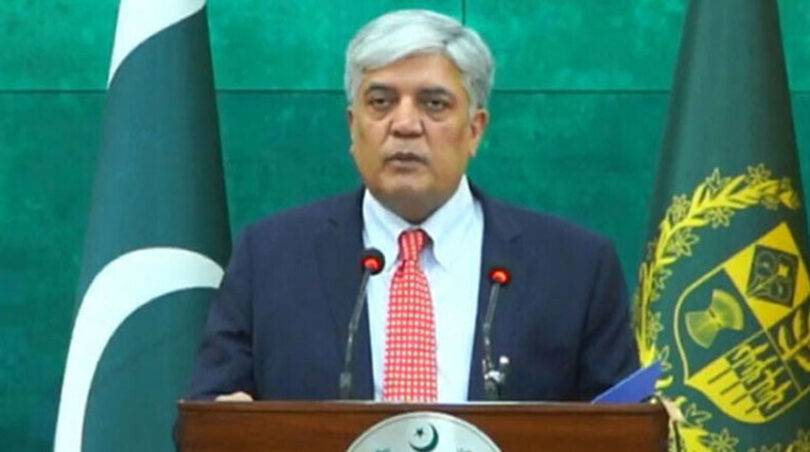F.P. Report
ISLAMABAD: Pakistan has strongly rejected what it calls “baseless assertions and provocative claims” made during a recent debate in the Indian Lok Sabha regarding the so-called Operation Sindoor, urging the Modi-led government to stop misleading its people and acknowledge the losses incurred by their armed forces.
In a detailed response to media questions, Foreign Office Spokesperson Shafqat Ali Khan criticized the Indian leadership for its “dangerous tendency to distort facts, justify aggression, and glorify conflict for domestic consumption”.
‘India attacked without evidence’
The spokesperson said India launched an unprovoked attack on Pakistan in the wake of the Pahalgam incident without conducting any investigation or presenting credible evidence. “The world knows that India attacked Pakistan without any verifiable evidence or a credible investigation… resulting in the martyrdom of innocent men, women, and children,” he noted.
He added that India failed to achieve any of its military objectives, and Pakistan’s swift response — which involved neutralizing Indian fighter jets and military targets — was a clear demonstration of its defensive strength. “This is an indisputable fact and a testament to Pakistan’s success,” Khan stated.
Indian leadership urged to accept third-party ceasefire role
Shafqat Ali Khan also stressed that Indian leaders should acknowledge the active involvement of a third party in facilitating the ceasefire following the escalation back in May. “India chose the path of belligerence and aggression and did not accept the Pakistani prime minister’s immediate offer for a transparent and independent investigation into the Pahalgam attack,” he said. “India acted as a judge, jury, and executioner.”
‘Operation Mahadev’ claims labelled baseless
The Foreign Office dismissed any references to Operation Mahadev as completely irrelevant. He further said the statement made by the Indian home minister during the parliamentary session was “replete with fabrications”. “It raises serious questions about the credibility of the Indian minister.”
He also questioned the timing of the reported killings of those allegedly involved in the Pahalgam attack, calling it a “mere coincidence” as it occurred just before the Lok Sabha debate.
Pakistan rejects notion of ‘new normal’ and ‘nuclear blackmail’
Addressing India’s narrative of a so-called “new normal” in bilateral relations and accusations of “nuclear blackmail,” the spokesperson said such statements are “misleading and self-serving”.
“For us, the only ‘normal’ in bilateral relations is respect for sovereignty and territorial integrity, and adherence to the principles and purposes of the UN Charter,” he insisted.
He reaffirmed that Pakistan’s response in May 2025 — using only its conventional capabilities — disproves any claims of nuclear posturing and showed that it would forcefully counter any future aggression. “India is trying to veil its own escalatory impulses while shifting blame onto Pakistan,” he asserted.
Indus Waters Treaty concerns
The spokesperson also rejected recent Indian remarks about the Indus Waters Treaty, stating that suspending or undermining the agreement shows its blatant disregard for the sanctity of international treaties.
“India should stop taking pride in unilateral and illegal decisions and instead honour the sanctity of binding global treaties,” he said.
Regional stability at risk
Concluding the briefing, Shafqat Ali Khan cautioned that India’s “reliance on disinformation, jingoism, and chest-thumping” could destabilize the entire South Asian region. He reiterated Pakistan’s commitment to “peace, regional stability, and a meaningful dialogue” with India on all outstanding issues, including the Kashmir dispute.
“Pakistan has responded firmly in the past, and will continue to do so in the future, should aggression be repeated,” the spokesperson warned.







